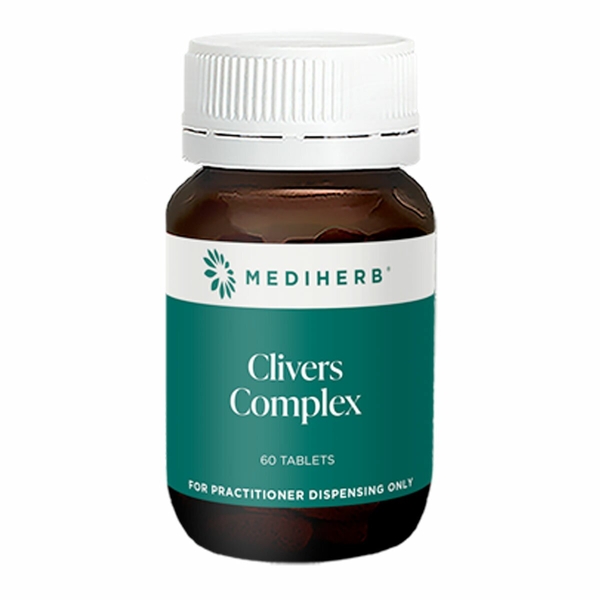
Background
Oregon grape is used for scaly, itchy skin (psoriasis), eczema (atopic dermatitis), stomach problems, and other conditions, but there is no good scientific evidence to support these uses.
Safety Safety definitions
When applied to the skin: Oregon grape cream is POSSIBLY SAFE for most people when applied directly to the skin. It can cause some side effects such as itching, burning, irritation, and allergic reactions.
Special Precautions & Warnings:
Pregnancy and breast-feeding: It's LIKELY UNSAFE to use Oregon grape if you are pregnant or breast-feeding. One of the chemicals in Oregon grape, berberine, may cross the placenta and might cause harm to the fetus. It can also be transferred to the infant through breast milk. Brain damage (kernicterus) has been reported in newborn infants exposed to berberine.Children: It's LIKELY UNSAFE to give Oregon grape to infants. The berberine in Oregon grape can cause brain damage (kernicterus) in newborns, particularly premature newborns who have jaundice. Jaundice is a condition in which there is yellowing of the eyes and skin caused by bile pigments in the blood. There isn't enough reliable information to know if Oregon grape is safe to give to older children. Stay on the safe side and avoid use.
Diabetes: Oregon grape can lower blood sugar. Oregon grape may cause blood sugar to become too low in people who are also taking antidiabetes medications. Use with caution.
Low blood pressure: Oregon grape can lower blood pressure. Oregon grape might increase the risk of blood pressure becoming too low in people who already have low blood pressure. Use with caution.
Effectiveness
- Scaly, itchy skin (psoriasis). Some evidence suggests that applying a specific 10% Oregon grape extract cream (Relieva by Apollo Pharmaceutical) can reduce the severity of psoriasis and improve quality of life for people who have psoriasis. It might be as effective as the medication calcipotriene (Dovonex) cream for some people.
- Eczema (atopic dermatitis). Early research suggests that applying a specific Oregon grape extract cream (Relieva by Apolla Pharmaceutical) for 12 weeks might improve the severity and area of itchy and inflamed skin in people with a skin condition called eczema.
- Stomach ulcers.
- Heartburn.
- Stomach upset.
- Other conditions.
Dosing & administration
APPLIED TO THE SKIN:
- For scaly, itchy skin (psoriasis): A specific 10% Oregon grape bark extract cream (Relieva, Apolla Pharmaceutical) is applied to affected areas 2-3 times daily.
Interactions with pharmaceuticals
Cyclosporine (Neoral, Sandimmune)
Interaction Rating=Moderate Be cautious with this combination.
The body breaks down cyclosporine (Neoral, Sandimmune) to get rid of it. Oregon grape might decrease how fast the body breaks down cyclosporine (Neoral, Sandimmune). This might cause there to be too much cyclosporine (Neoral, Sandimmune) in the body and potentially cause side effects.
Medications changed by the liver (Cytochrome P450 2C9 (CYP2C9) substrates)
Interaction Rating=Moderate Be cautious with this combination.
Some medications are changed and broken down by the liver. Oregon grape might decrease how quickly the liver breaks down some medications. Taking Oregon grape along with some medications that are broken down by the liver can increase the effects and side effects of some medications. Before taking Oregon grape, talk to your healthcare provider if you are taking any medications that are changed by the liver.
Some medications changed by the liver include celecoxib (Celebrex), diclofenac (Voltaren), fluvastatin (Lescol), glipizide (Glucotrol), ibuprofen (Advil, Motrin), irbesartan (Avapro), losartan (Cozaar), phenytoin (Dilantin), piroxicam (Feldene), tamoxifen (Nolvadex), tolbutamide (Tolinase), torsemide (Demadex), and S-warfarin (Coumadin).
Medications changed by the liver (Cytochrome P450 2D6 (CYP2D6) substrates)
Interaction Rating=Moderate Be cautious with this combination.
Some medications are changed and broken down by the liver. Oregon grape might decrease how quickly the liver breaks down some medications. Taking Oregon grape along with some medications that are broken down by the liver can increase the effects and side effects of some medications. Before taking Oregon grape, talk to your healthcare provider if you are taking any medications that are changed by the liver.
Some medications changed by the liver include amitriptyline (Elavil), codeine, desipramine (Norpramin), flecainide (Tambocor), haloperidol (Haldol), imipramine (Tofranil), metoprolol (Lopressor, Toprol XL), ondansetron (Zofran), paroxetine (Paxil), risperidone (Risperdal), tramadol (Ultram), venlafaxine (Effexor), and others.
Medications changed by the liver (Cytochrome P450 3A4 (CYP3A4) substrates)
Interaction Rating=Moderate Be cautious with this combination.
Some medications are changed and broken down by the liver. Oregon grape might decrease how quickly the liver breaks down some medications. Taking Oregon grape along with some medications that are broken down by the liver can increase the effects and side effects of some medications. Before taking Oregon grape, talk to your healthcare provider if you are taking any medications that are changed by the liver.
Some medications changed by the liver include cyclosporine (Neoral, Sandimmune), lovastatin (Mevacor), clarithromycin (Biaxin), indinavir (Crixivan), sildenafil (Viagra), triazolam (Halcion), and many others.
Medications for diabetes (Antidiabetes drugs)
Interaction Rating=Moderate Be cautious with this combination.
Oregon grape might lower blood sugar. Diabetes medications are also used to lower blood sugar. Taking Oregon grape along with diabetes medications might cause your blood sugar to go too low. Monitor your blood sugar closely. The dose of your diabetes medication might need to be changed.
Some medications used for diabetes include glimepiride (Amaryl), glyburide (Diabeta, Glynase PresTab, Micronase), insulin, pioglitazone (Actos), rosiglitazone (Avandia), and others.
Medications for high blood pressure (Antihypertensive drugs)
Interaction Rating=Moderate Be cautious with this combination.
Oregon grape might decrease blood pressure in some people. Taking Oregon grape along with medications used to lower high blood pressure might cause your blood pressure to go too low.
Some medications for high blood pressure include captopril (Capoten), enalapril (Vasotec), losartan (Cozaar), valsartan (Diovan), diltiazem (Cardizem), amlodipine (Norvasc), hydrochlorothiazide (HydroDIURIL), furosemide (Lasix), and many others.
Medications that slow blood clotting (Anticoagulant / Antiplatelet drugs)
Interaction Rating=Moderate Be cautious with this combination.
Oregon grape might slow blood clotting. Taking Oregon grape along with medications that also slow clotting might increase the chances of bruising and bleeding.
Some medications that slow blood clotting include aspirin, cilostazol (Pletal), clopidogrel (Plavix), dalteparin (Fragmin), enoxaparin (Lovenox), heparin, ticlopidine (Ticlid), and others.
Sedative medications (CNS depressants)
Interaction Rating=Moderate Be cautious with this combination.
Oregon grape might cause sleepiness and drowsiness. Medications that cause sleepiness are called sedatives. Taking Oregon grape along with sedative medications might cause too much sleepiness.
Some sedative medications include benzodiazepines, pentobarbital (Nembutal), phenobarbital (Luminal), secobarbital (Seconal), thiopental (Pentothal), fentanyl (Duragesic, Sublimaze), morphine, propofol (Diprivan), and others.
Interactions with herbs & supplements
Herbs and supplements that might lower blood sugar: Oregon grape might lower blood sugar. Using it along with other herbs and supplements that have the same effect might cause blood sugar to drop too low in some people. Some of these products include alpha-lipoic acid, bitter melon, chromium, devil's claw, fenugreek, garlic, guar gum, horse chestnut seed, Panax ginseng, psyllium, Siberian ginseng, and others.
Herbs and supplements that might slow blood clotting: Oregon grape might slow blood clotting. Taking Oregon grape along with other herbs that might slow blood clotting might increase the chances of bruising and bleeding. These herbs include angelica, clove, danshen, garlic, ginger, ginkgo, Panax ginseng, and others.
Herbs and supplements with sedative properties: Oregon grape can cause sleepiness or drowsiness. Using it along with other herbs and supplements that have the same effect might make you overly drowsy. Some of these herbs and supplements include calamus, California poppy, catnip, hops, Jamaican dogwood, kava, L-tryptophan, melatonin, sage, SAMe, St. John's wort, sassafras, skullcap, and others.





